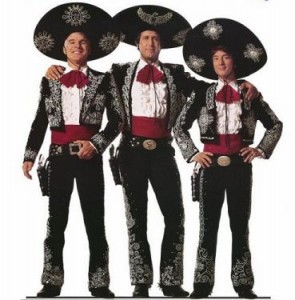By Lindsay Bell
Welcome to the 72nd edition of The Three Things, the weekly update of three links, podcasts, videos, or books you can’t miss – from Howie Goldfarb (Blue Star Strategic Marketing), Laura Petrolino, and yours truly.
For those of you new to this series, The Three Things arrives in your inbox on Sunday mornings (unless you don’t subscribe, but that can easily be fixed if you hurry over and enter your email address or add to your RSS feed) so you have some extra time to spend perusing the obscure content we’ve curated for you (and one another) before your week begins and deadlines, meetings, and work takes over.
Today we explore who owns the universe, the human spirit and the physiological process of death, and the prison system, and how it destroys those who grow up in it.
Can an Atheist be in Awe of the Universe
Howie on God, and the Universe. Are you in awe of the universe? I sure am. But to me, that awe doesn’t translate into a higher belief in God – or Goddess. To me, being a living, feeling, sentient being is pretty freaking amazing.
Not sure I would feel the same feelings as a sea slug…but who knows! My personal feeling is, no matter what anyone’s spiritual beliefs, when we see something awe inspiring, my guess is it is human nature for us to find awe together – when awesome is present.
Laura on Death and Electroshock Therapy. This week Dr. Sherwin Nuland, surgeon, philosopher, and author died at 82. Dr. Nuland is best know for his book How we Die, which deconstructs the physiological process of death. I was first introduced to his work one day when doing what I like to call ‘TEDx Talk Roulette”, where I’ll randomly pick a TED talk to watch (wild and crazy, I know).
His talk ‘How Electroshock Therapy Changed Me” came up and literally took my breath away. Not only is he an amazing story teller, but through his work to deconstruct and demystify death, he was able to focus in on the power of the human spirit to rebuild, overcome, and recover despite what seems possible from an anatomical or physiological stand point. It’s fascinating and inspiring. And if you don’t care about any of that, it’s worth your 12 minutes from a mere storytelling aspect.
Lindsay on Spending Your Formulative Years Locked Up. My local bar is a bit of a mixed bag when it comes to its patrons. And that’s part of what I love about it. You get your professionals, your bar flies, and your – well – undesirables (depending on who you ask). So, interestingly enough, I had the following conversation on Friday night.
A gentleman I had never seen before began telling me about his recent release from prison. He went on to share that he had been inside for the better part of 20 years of his adult life. As bizarre as that concept was to me, what he said next was even more bizarre. He spoke about what happened when you spent so long inside. How you didn’t know how to “make choices” – how he couldn’t pick from a menu, because he was so used to being told what to eat every day. How he has been told when to shower, when to shave, when to exercise, and when to turn the lights out, for nearly his entire adult life.
He spoke eloquently about the disability this brought to men who face release back into civilization. While this article speaks about the ramifications of incarcerated people living in solitary confinement, it made me think about what people face when they leave prison. Especially those who have learned to survive in this environment. And haven’t really learned how to survive in ours.
Now it’s your turn. Is there a book, podcast, article, TV show, blog post, or story we should read?
